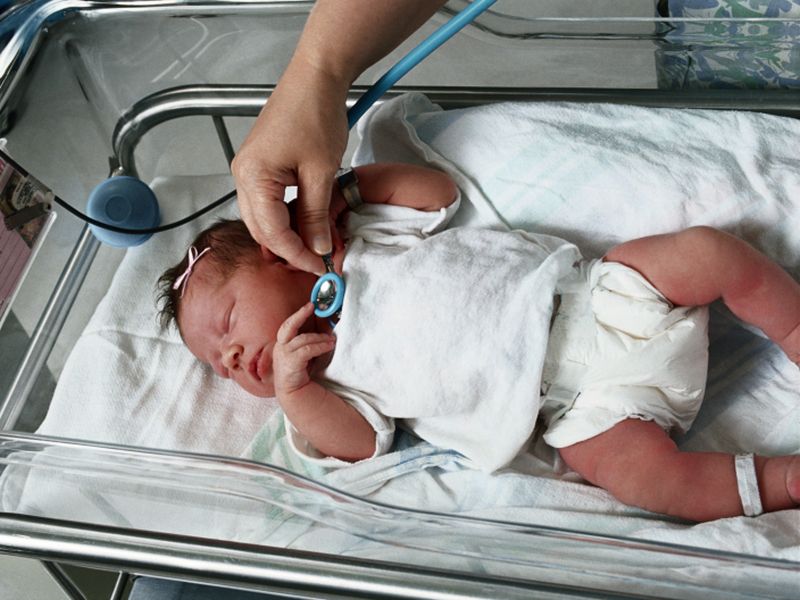Get Healthy!

- Robert Preidt
- Posted June 20, 2019
How Do Birth Defects Affect Childhood Cancer Risk?
Children with birth defects may be at increased risk for childhood cancer, a new study finds.
Researchers analyzed data from more than 10 million children born in Texas, Arkansas, Michigan and North Carolina between 1992 and 2013.
Compared to children without a birth defect, those with genetic defects were almost 12 times more likely to develop cancer by age 18. Those whose birth defect had no known genetic cause -- also known as non-chromosomal defects -- had more than 2.5 times the risk.
Types of cancer that were more frequent in children with non-chromosomal birth defects included hepatoblastoma, a form of liver cancer, and neuroblastoma, which often starts in the adrenal glands.
Children with more than one non-chromosomal defect had a greater risk of cancer than those with one such defect, according to the study.
Scientists from Baylor College of Medicine in Houston led the investigation. It was described as the largest ever to evaluate cancer risk in children with birth defects.
"While cancer risk in children with certain chromosomal defects like Down syndrome is well-established, much less is known for children with birth defects where there is no known genetic cause," said researcher Philip Lupo, an associate professor of pediatrics/hematology-oncology.
"Non-chromosomal defects, as a group, affect more children, but one of the primary challenges of understanding risk among these children is that limited sample sizes make studying specific defects, like spina bifida, more difficult," he said in a college news release.
Postdoctoral associate Jeremy Schraw said the research had two aims.
"Our two key objectives in this study were to identify children who are at an increased risk for cancer, because subsets of these children may one day benefit from screening and better clinical management, and to uncover clues as to why cancer occurs more frequently in this population," Schraw said.
"These findings solidify our understanding of cancer risk in these children and show that we need additional research in this area," he added.
While the study found a strong link between birth defects and cancer risk, Schraw said it's important to remember that both birth defects and childhood cancers are rare.
The next goal is now in focus, researchers said.
"In the future, we hope to identify the specific genes behind these associations and systematically research what happens from the time of birth to the time of cancer onset to also understand if environmental factors may be contributing to cancer development," Lupo said.
The study was published recently in the journal JAMA Oncology.
More information
The American Cancer Society has more on cancer in children.
SOURCE: Baylor College of Medicine, news release, June 20, 2019







